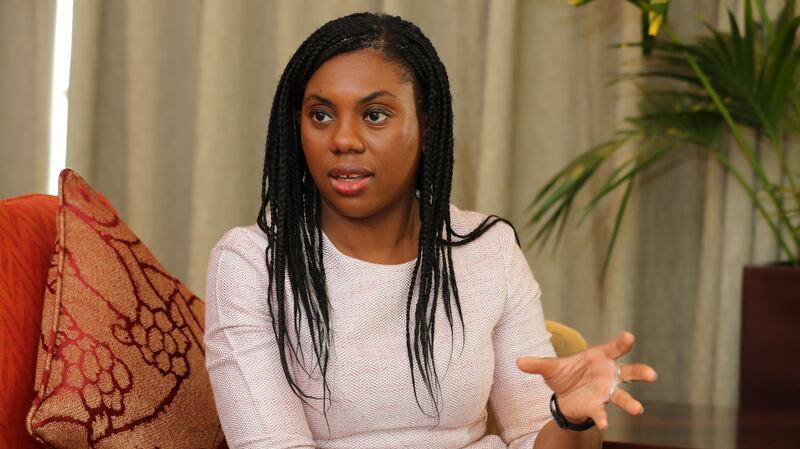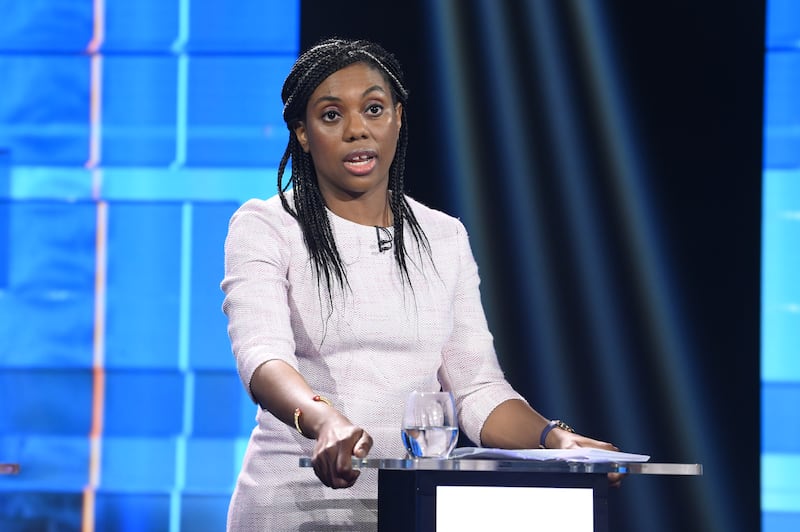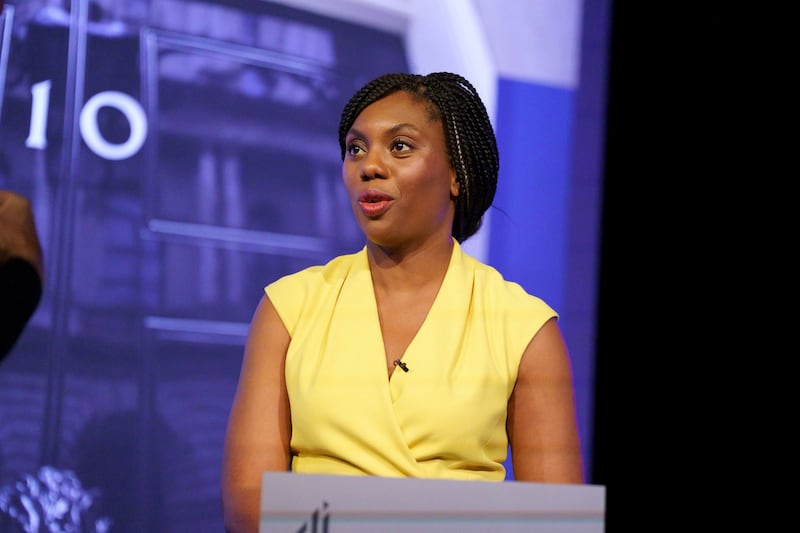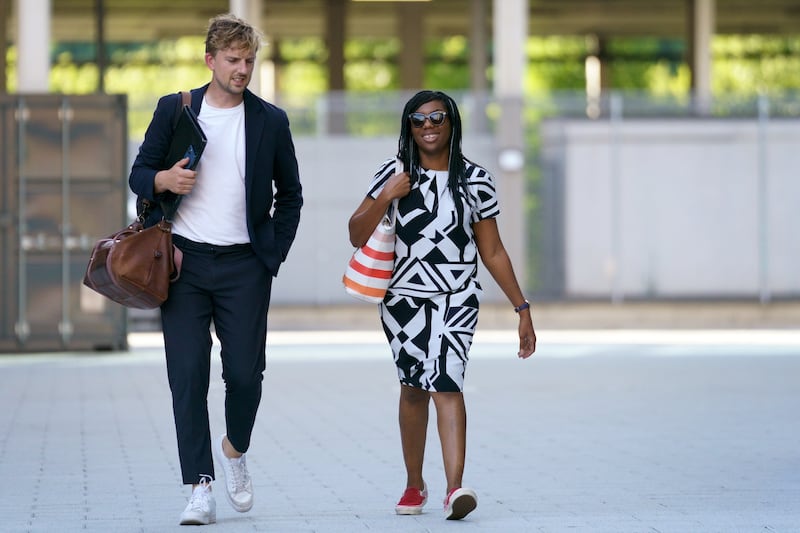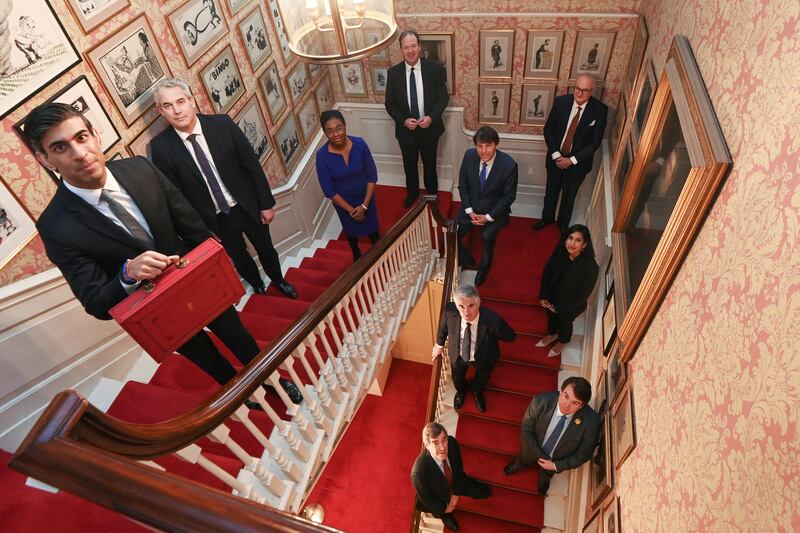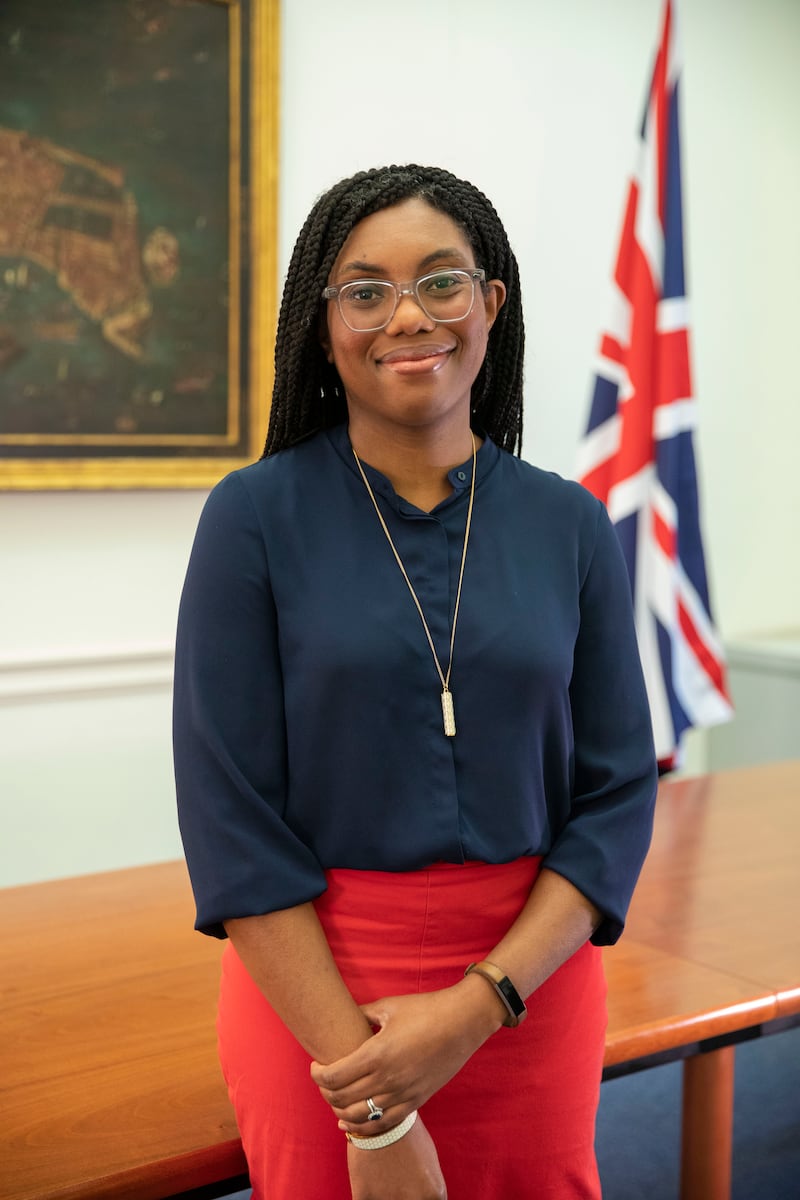The UK is hoping to sign a major free trade deal with the GCC “soon”, a British minister has said.
Kemi Badenoch, the country’s Business Secretary, said talks were going “very well” as she completed a tour of the UAE, Saudi Arabia and Qatar.
Speaking exclusively to The National in Dubai on Thursday, Ms Badenoch said the UK wanted to get as many trade deals signed as possible as the government neared the end of its parliamentary cycle with a general election expected no later than January, 2025.
She added that a GCC-wide agreement in this context would be more beneficial than individual deals that take longer to do.
The pro-Brexit minister also outlined at least one thing she disliked about the UK's process of leaving the EU and how growing up in Nigeria under military rule influenced her political thinking.
“The Prime Minister has asked me to do a GCC deal,” she said. “So that’s what I’m working on.
“I'm looking forward to us continuing to progress and get a GCC-UK free trade agreement done sometime soon.”
The MP arrived in the Middle East last Sunday and said her visit was vital to the negotiations.
She said that ministers needed to hear what people on the ground were saying and what “obstacles” might persist so she could “look at what regulations we may be either able to ease or, in some cases, bring in.
“The world we are in now is very different from the world we were in 18 months ago, before Russia and Ukraine started.”
Ms Badenoch said a free trade deal, which typically involves better access to markets, reduced tariffs and more choices for consumers, would benefit the GCC “immensely”.
“If you look at state owned enterprises and public procurement, these are areas where some of the countries are a little bit more closed,” she said. “But it allows us to offer more competitive services.”
Ms Badenoch emphasised that the UK is mainly a services economy, which allows it to “go further” than some of its competitors. But she stressed that food and drink, cars and clothes were also important.
“There is quite a lot of goods trade coming from the UK to here such as Welsh lamb – it is a brilliant export. We have been eating it while we are here,” she said. “We [also] have a strong car manufacturing industry.
“That is something we will be hoping to expand as part of the trade agreement so it is all to play for.”
Booming trade
Trade between the UK and GCC reached a reported record high of £61.3 billion in 2022.
According to the UK government a deal could increase this by up to 16 per cent.
Collectively, the GCC is equivalent to the UK's seventh largest export market and GCC demand for goods and services is expected to grow to almost £1 trillion by 2035 – an increase of over 75 per cent.
The UK began negotiations with the six-country bloc last year and has completed three rounds of talks so far with a fourth expected later this year.
Ms Badenoch said her talks in the UAE were focused on professional services, financial services, data and technology. She met Omar Al Olama, Minister of State for AI, Digital Economy and Remote Work Applications; Thani Al Zeyoudi, UAE Minister of State for Foreign Trade; and visited Dubai's Museum of the Future.
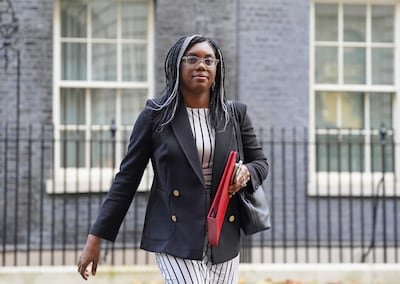
Political rise
Ms Badenoch, who described Brexit as “the greatest ever vote in confidence in the project of the United Kingdom”, became an MP for the first time in 2017.
While she lost out to Liz Truss in the Conservative Party leadership campaign in 2022, she made a strong impression, with many within the party hailing her as a potential future leader. Following the resignation of Ms Truss, Ms Badenoch endorsed Rishi Sunak in his successful leadership campaign.
Just a few years after entering parliament, she has become the government minister given the job of with navigating an often complex and fiercely competitive new economic world order, often garnering some criticism in the process.
Her recent decision to scale back plans to review or revoke all EU laws from the British statute book by the end of the year was lambasted by Tory MPs.
When asked if there was anything she disliked about Brexit, she said it was “quite a tough question”.
“I think what's been really bad is how people have treated it as an outcome.
“I think that has been quite sad because I don't think that was foreseeable when people were taking part in the referendum. For me it is a process, not an outcome.”
Humble beginnings
Ms Badenoch was born in London and lived in Nigeria as a teenager when the country was in the grip of the military and highly stressed by extreme economic suffering and political chaos.
She left for the UK in the 1990s, when she was 16, after her father saved enough money for a plane ticket. One of her first jobs was at McDonald's.
She studied engineering at university and worked in IT before going on to become an MP in what has been called a remarkable generational success story. But those early days in Nigeria still resonate.
“There was no space for any differing opinion,” Ms Badenoch said of life under military rule.
“I remember when the water stopped working, the government owned all of the utilities and there was no one to go to.
“There was no resource to help repair things and that really influenced my view of how an economy should work.
“The people should have more participation and should be able to play a part in how their country is run.”
Meanwhile, her visit to the GCC follows the first meeting in London this month of the high-level UAE and UK strategic dialogue.
Both sides said it aimed to advance international peace, security and growth. While Ms Badenoch has not participated in that, she said it “formed the basis for so many other things that take place”, such as the UAE-UK Sovereign Investment Partnership.
The UK has also signed deals with the UAE from artificial intelligence to clean energy.
Ahead of Cop28, which will take place in Dubai this year, Ms Badenoch said energy was another area that was fruitful for co-operation.
She said she did not know yet if she would attend Cop28 but that she was looking forward to attending the World Trade Organisation ministerial conference in Abu Dhabi next February.
"This is a region very much built on personal relationships and in order to get things done … we can’t just write letters," she said, "We need to get over here."
